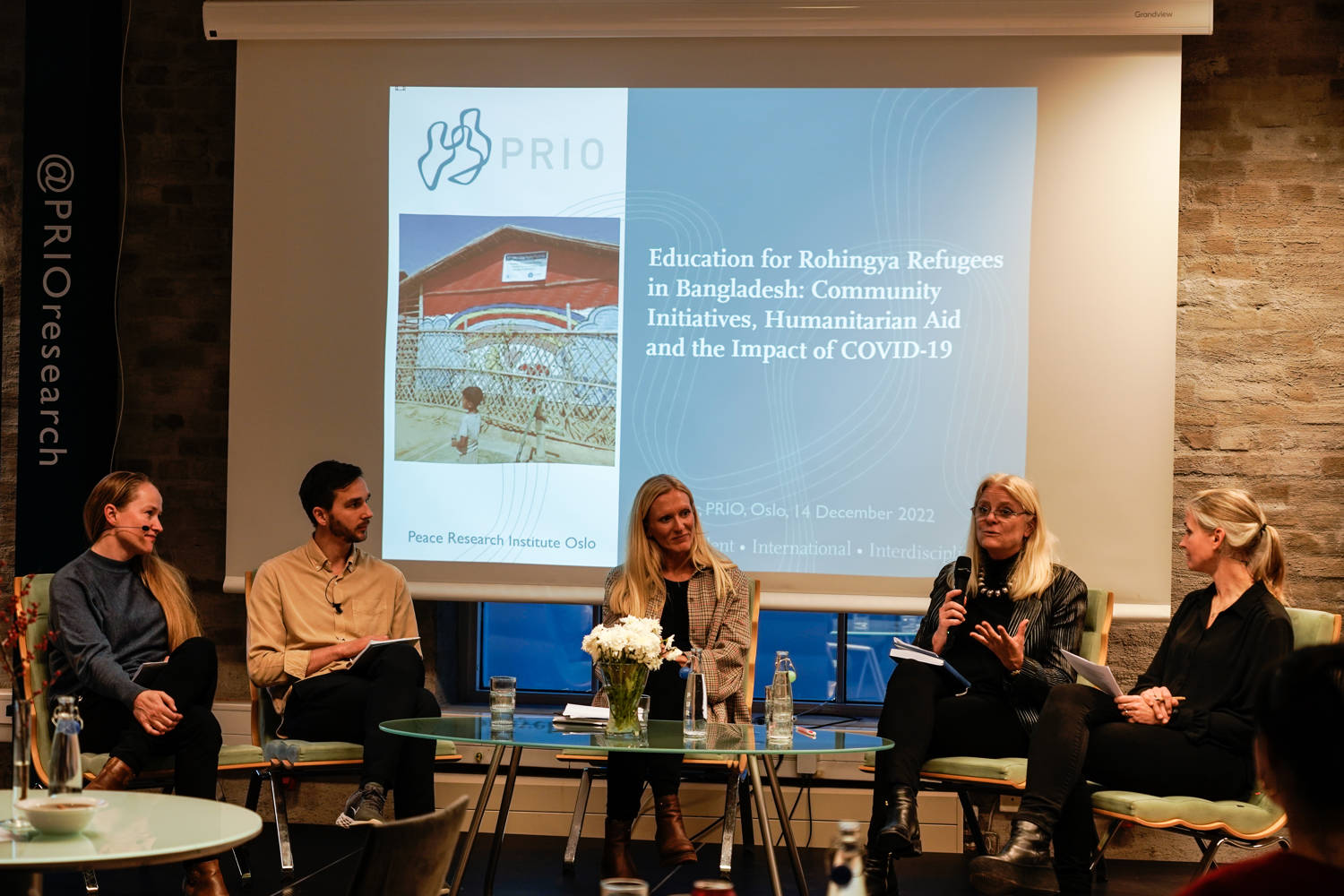
Five years have passed since more than 700,000 Rohingya fled from the brutal military crackdown in Myanmar’s Rakhine State. The Rohingya refugee camps in Cox’s Bazar, Bangladesh, make up the world’s largest and most densely populated refugee settlement.
About 50% of the refugees are below the age of 18. The Government of Bangladesh prohibits the Rohingya refugees from accessing formal education. Instead, the refugee children are offered non-formal education programmes from various nongovernment organizations.
What does the education landscape look like for Rohingya refugee children in Bangladesh? How has the Covid-19 pandemic impacted the options for learning among refugees and host communities? What are the challenges for education providers operating in this context and ‘what works’? What do the refugees themselves want and what are they doing to achieve their goals?
The EducAid project, hosted at the Peace Research Institute Oslo (PRIO), in collaboration with Cornell University, USA and Innovations of Poverty Action (IPA) seeks to address these questions. The project relies on both quantitative data based on a series of household surveys with both refugees and hosts, and a qualitative study with Rohingya teachers and students that includes a documentary film project.
In this seminar we present and discuss some findings from the project. The research is funded by the Research Council of Norway through the NORGLOBAL-programme.
Preliminary programme
12.30: Coffee, light lunch
13.00: Gudrun Østby (PRIO): Welcome and introduction to the EducAid project
Camilla Fossberg Helgø (Ministry of Foreign Affairs): Norways efforts to promote education in crisis and conflict
Sabrina Karim (Cornell University): When governments and international organizations shut down: Refugees’ and host community’s use of educational services during Covid-19 and school closures in Cox’s Bazar, Bangladesh
Haakon Gjerløw (PRIO) The impact of Covid-19 on education for refugees and host community children: Returning to school after the re-opening or (further) left behind?
Marte Nilsen (PRIO) ‘Something is better than nothing’: Refugee-led learning and education initiatives
Short documentary film made by young Rohingya refugees
Comments:
Kristin Thomassen Wæringsaasen (NORAD)
Sine Dyrby Christensen (Save the Children Norway)
Panel Discussion: Looking Ahead: What can be done to improve the education situation for refugees and host community children?
15.00: Coffee and mingling





